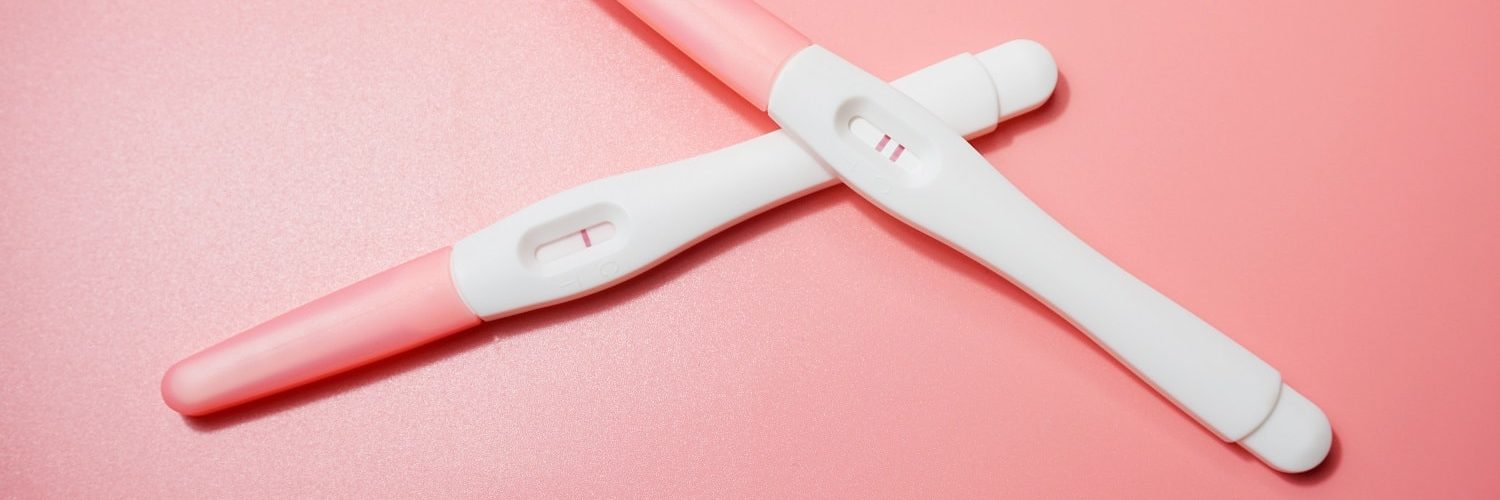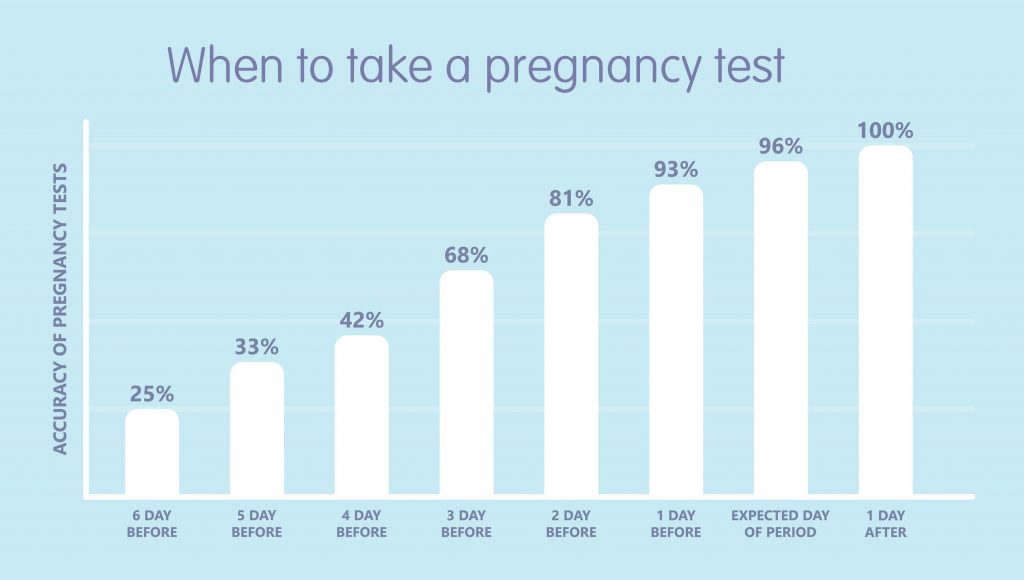

Taking a pregnancy test is a moment invariably surrounded by heightened emotion. You may be hoping to get pregnant after months of trying. Or you might be equally keen for reassurance that you’re not pregnant. In any case, the test is never a matter of indifference. It’s perfectly understandable that when you want to take that test, you will be anxious to know the result as soon as possible. But it would be best to have a little patience.
Given that an accurate result is just as crucial as a speedy one, resisting the temptation to take an early pregnancy test before the right time is essential. As a rule of thumb, the first day of your missed period is about right.
How do pregnancy tests work?
There are different ways of testing for pregnancy, including having a blood test at a doctor’s surgery or a specialist clinic. For the moment, we’re looking at over-the-counter pregnancy test kits that you can buy in a chemist or supermarket and take home. With these tests, you get your result in the privacy of your own surroundings when the time comes.
Home pregnancy tests work by checking for human chorionic gonadotrophin (hCG) in your urine. HCG is commonly called the pregnancy hormone because it starts circulating in your body after conception. Trophoblasts, the cells found inside an early embryo that go on to form the placenta, produce the hCG hormone. After the embryo attaches to the womb lining, hCG builds up fairly rapidly in your body. At this point, the hormone is present in both urine and the bloodstream. Even though it is detectable at a low level and in very small concentrations, it takes some time for levels to build up for a reliable test result. Taking a pregnancy test before your period is due is not advised.
How do you take a test?
Different brands have different methods of testing urine. Most advise doing the test first thing in the morning. This is because your urine will be at its most concentrated. Some ask you to collect urine in a receptacle and then dip a testing stick into it. With others, you need to collect the liquid and then use an eyedropper to place a small amount into a special container. Others work by holding the testing stick under the urine stream, so there’s no collection involved.
How do you know if I’m pregnant?
The way the result is presented also varies according to the brand. It’s best to read the instructions beforehand. These will tell you the length of time you need to wait before checking the result. The result is often displayed with a colour change, a line, a plus or minus symbol or even the words ‘not pregnant’ or ‘pregnant’.
How early can you detect pregnancy?
How early you can detect pregnancy depends on the type of test you use. The usual and long-standing advice is to wait until the first day of your missed period. This is to allow enough time for detectable levels of hCG to build up. Some tests are more sensitive, and you may be able to take a pregnancy test as early as 4 to 5 days before your period is due. Check the instructions on the packet!
A pregnancy blood test conducted by a doctor’s surgery or a specialist clinic can detect pregnancy earlier than a home pregnancy kit. These can be taken 7 to 12 days after you conceive. However, unless you’re undergoing IVF or have a medical condition that makes an early pregnancy test essential, a home kit is much more likely to be your most practical option.
You probably won’t know the exact date of the suspected conception at this stage. Although you can roughly estimate when ovulation takes place (two weeks before your next period is due), this may be inaccurate depending on the regularity of your cycle. Irregular cycles are common, and they can make the exact date of ovulation unpredictable. The NHS advises that you can assume conception took place two weeks before your first missed period was due. They also have a pregnancy due date calculator so you can work out your baby’s due date.
How accurate are pregnancy tests?
Pregnancy test accuracy relies on the number of days you need to wait. As long as you follow the recommended time, home test kits are generally 97% accurate. Some kits come with two tests, so if you get a result you were not expecting, you can check again in a couple of days. It’s worth knowing that a positive test is almost certainly correct, but that false negatives are slightly more likely. You should consult your GP immediately if you get a positive test result.
A word of caution: some medications can affect the result and make it positive even though you are not pregnant. These include allergy medicines such as promethazine, medications for anxiety and anti-psychotics, diuretics, anticonvulsants and even some medications used to help infertility. You will also find a complete list in the instructions in the packet. If in doubt, you can ask a pharmacist.
Getting help when it’s needed
We genuinely hope you get the result you were hoping for from your test! But if you are among the few people who long for a pregnancy that never seems to happen, don’t wait too long before finding some help. Your GP may be able to refer you for NHS-funded fertility treatment at a fertility clinic. This will depend on your eligibility, decided by your local clinical commissioning group (CCG). The NHS publishes a guide to finding your local CCG.
If the services you need are unavailable or the waiting list is too long, you could get in touch with us at IVI. A positive first step would be to take a look at the video about our London clinic or sign up for one of our online open evenings.






Comments are closed here.